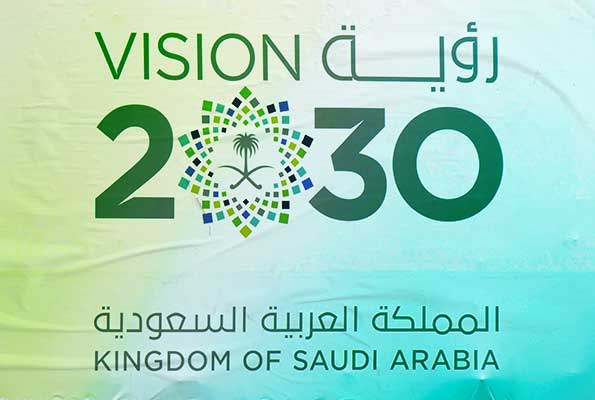Saudi Arabia’s start-up environment is quickly becoming a solid ecosystem for digital entrepreneurship. As part of its ‘Vision 2030’, which seeks to diversify the economy away from dependency on oil, generate jobs, and entice highly trained personnel into the Kingdom, the nation places a premium on expanding the technology industry.
Saudi Arabia has seen a rise in venture capital investments. According to Arab News, nine funds totalling USD 2.4 billion were unveiled at a recent ‘LEAP 2023’ event in Riyadh to support start-up growth. According to Harvard Business Review, VC funding for Saudi companies surged 72% in 2021 and 2022, reaching USD 987 million across 144 agreements.
The Kingdom is appealing to investors due to its young, tech-savvy population’s incredible thirst for digital services. According to the GEM research, 90% of respondents thought it was simple to establish a business in Saudi Arabia, putting it in first place among economies. Additionally, according to the GEM research, 80% of respondents saw the potential to launch a business due to the changes COVID had caused.
Rise Of Disruptive Start-Ups & Policy Reforms
Saudi Arabia has now started various programs to make the nation one of the most technologically sophisticated in the world to create a culture of innovation. The country’s technology is at the heart of these strategic plans, containing ‘Vision 2030’, a political, societal, and economic change roadmap. By assisting other government bodies in creating, implementing, and policing digital government services, the Digital Government Authority (DGA) directs the Kingdom’s march toward digital transformation.
Thirty-three million people in Saudi Arabia are strikingly young and tech-savvy, preparing the nation to become the Silicon Valley of the Middle East. The average age of the population in the Kingdom is just under 35. Given that the population has a significant appetite for digital services and is appealing to investors, this presents a fantastic chance for technology to become ingrained in the country’s development.
Furthermore, Saudi Arabia has drawn over USD 9 billion in investments in cutting-edge technology. Microsoft is planning to invest USD 2.1 billion in a global super-scaler cloud, according to Abdullah Alswaha, Saudi Arabia’s minister of communication and information technology.
In comparison, Oracle has committed USD 1.5 billion to construct a new cloud area in Riyadh. So, for foreign businesses to profit from government contracts, Saudi officials have pushed them to invest in Saudi Arabia and relocate their regional offices to Riyadh.
The Saudi government has established a setting that encouraged innovation. This entails making research and development investments, putting in place enabling laws, and cultivating an innovative culture inside the government.
The ‘Saudi Vision Cable’, the first high-capacity undersea cable in the Red Sea, covers 1,160,000 meters and is one example of Saudi Arabia’s investments in the technological future. Through four landings in Jeddah, Yanbu, Duba, and Haql, it will offer seamless connection of up to 18Tbps/fibre pair with 16 fibre pairs.
The King Abdullah University of Science and Technology (KAUST) is another crucial step the Kingdom has taken. A top-tier research institution, KAUST offers researchers and businesspeople from around the globe cutting-edge facilities and tools. Through the recruitment of top people and support for innovation, the institution has already made a substantial contribution to the expansion of the regional technology sector.
Creating numerous technological hubs and incubators to aid start-ups and business owners is another crucial move. These centres enable entrepreneurs to realize their ideas by giving them access to resources, including finance, mentoring, and networking opportunities.
One of the most significant and substantial projects recently opened in Saudi Arabia: Center3 Company, the new digital regional hub for the Middle East and North Africa (MENA). The firm will control all digital infrastructure assets owned by the STC Group, such as data centres, undersea cables, global points of presence, and internet exchange points. Importantly, it will enable and supply global connectivity for the telecoms industry via an undersea fibre-optic network.
Additionally, Saudi Arabia has established legal frameworks to guide the nation’s digital transformation and build an ecosystem that draws outside investment. Saudi Arabia is promoting regulation to boost entrepreneurship and new business ventures and implementing regulatory frameworks to support its digital economy.
The Final Words
The private sector is given a range of incentives to promote the adoption of innovative technology. Financial incentives, increased automation, increased flexibility for remote and hybrid work, higher employment rates, improved human resource management techniques, a competitive advantage, precise decision-making, and snagging future markets are just a few of the benefits.
There are several disruptive tech start-ups popping up in Arabia like fintech service Tamara, logistics app Trukker, restaurant-management suite Foodics, grocery-delivery solution Nana, etc.
There is no disputing Saudi Arabia’s potential to become the world’s leading IT powerhouse in the future. Its vital infrastructure, flourishing economy, and sufficient young support can all contribute to creating something truly exceptional.



